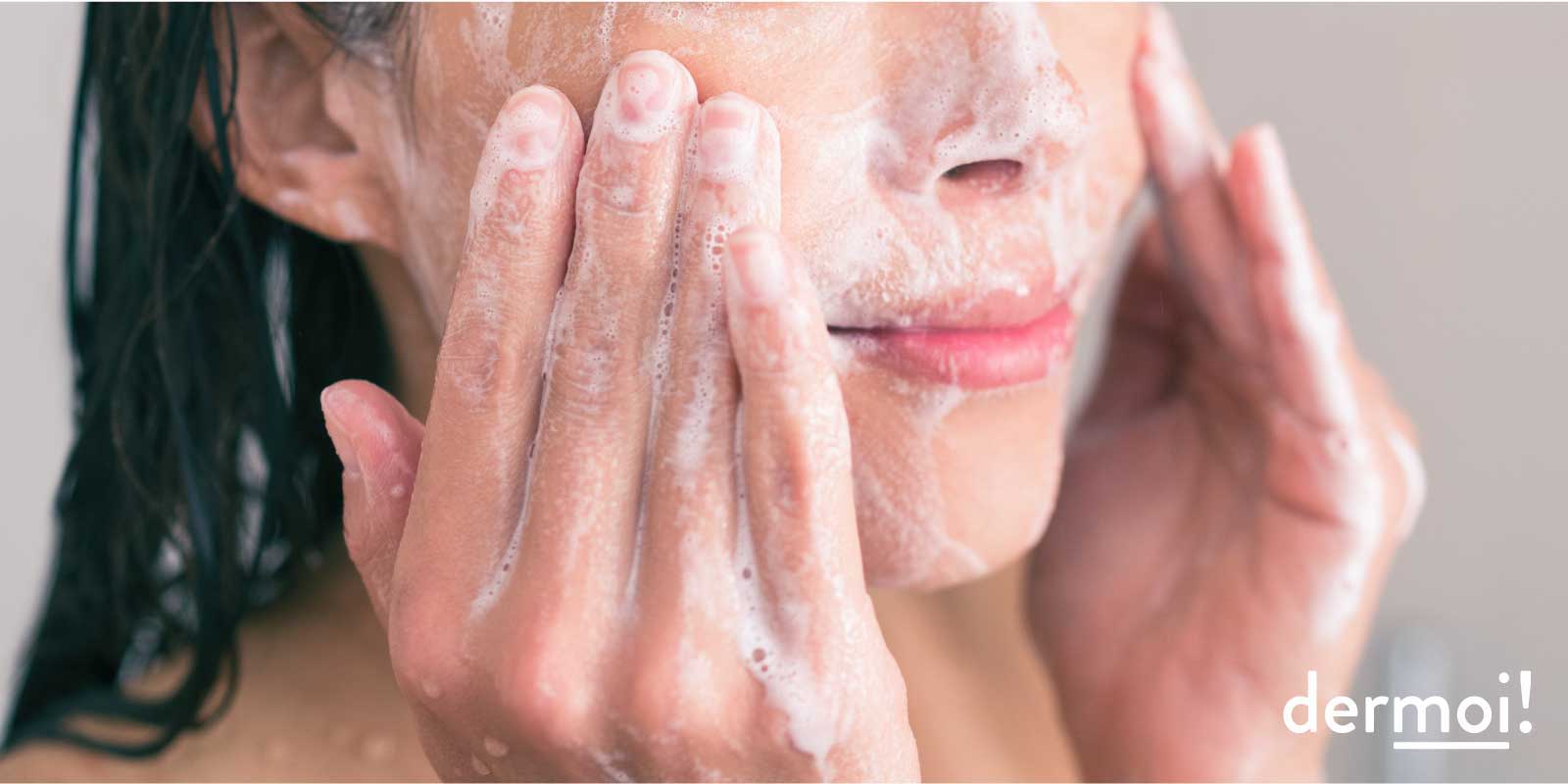6 Harmful Skin Habits for Eczema Sufferers
Research and backed by a Scientist

Eczema is a complex skin condition that is characterised by red, itchy, inflamed, dry skin. Symptoms can range from mild to severe and can be persistent or flare up. While there are multiple elements that contribute to the development of eczema (immunological, environmental, and genetic), it is estimated that 1 in 5 children and 1 in 10 adults in the UK will experience some form of eczema.
Within the skincare community, it can be difficult to know which habits are helpful and which may worsen the condition. Regardless of eczema type, here are 6 habits to avoid from Dermoi's Chief Scientific Officer, Eve Casha, MSc.
1. Taking Hot Showers
During showers, exposure to hot water temperatures can increase in skin barrier damage. This is because the outer layer of the skin, the skin barrier, is composed of dead skin cells (anucleated corneocytes) surrounded by a lipid matrix. Hot water interferes with these lipids and compromises skin barrier function. This leads to inflammation and water loss (dryness) and can affect DNA synthesis and lipid production in the skin.
During eczema flare ups, the skin is already in a compromised state with an impaired skin barrier, dryness, and inflammation. Try to reduce water temperature when in the shower, washing hands, or washing your face to protect your skin as much as possible.
2. Using Water-based Moisturisers (including hyaluronic acid)
The skin is naturally structured to bind and store water molecules; however, depending on skin health, this water can easily be lost through the epidermis. Humectants are ingredients that bind water and draw them into the skin. For example, hyaluronic acid is a well-established cosmeceutical active that can bind 1000x its weight in water, but other humectants include sodium PCA or glycerin.
With eczema, transepidermal water loss is high, so preventing additional dehydration with gentle oil-based hydrators (those containing occlusive agents) will provide much greater benefit.
3. Frequent Cleansing
Skin cleansers are essential in any skincare regime. They function to remove unwanted materials such as dirt, sweat, sebum and other oils from the skin. Cleansers are composed of surfactants, and in many cases, harsh surfactants can damage the skin barrier, its lipid components, as well as the pH of the skin.
During eczema flare ups, over cleansing or using aggressive cleansers has been linked with worsening of the condition. Avoid all cleansers that give immediate tightness or dryness, or those that have high foam. Reducing cleansing frequency and reach for an emollient, oil-based cleanser followed by a rich hydrator.
4. Reaching for Natural Skincare
While there is a myth that natural remedies are always the ‘better’ solution, this is not the case when it comes to skincare. Many natural extracts contain active compounds that can strip skin barrier or exacerbate inflammation. For example, many natural products are high in allergens such as essential oils, or fruit enzymes and acids that will exfoliate the skin and worsen an eczema lesion.
All skincare products, natural or synthetic, are comprised of chemical substances, and many synthetic products are specifically formulated to reduce irritation on the skin. Reach for simple and gentle formulation irrespective of their origin.
5. Ignoring the Stress Element
While there are many factors that contribute to the development of eczema, stress (both mental and physical) plays a role in the condition. During periods of stress the epidermal skin barrier is impaired as stress influences skin cell shedding as well as skin cell cohesion. Stress also induces inflammation and allergic responses within the skin and the release of inflammatory neuropeptides.
Introducing mindful and lifestyle practices to reduce mental stress or changing lifestyle factors such as diet, alcohol consumption, smoking, or investing in nutraceutical skin can help to calm eczema and reduce flare ups.
6. Overdoing it with Active ingredients
Introducing new active ingredients into any skincare regime takes time. Whether it’s the anti-aging hero ingredient vitamin A (retinoids) that is known to cause initial irritation, or other actives such as vitamin C, growth factors, peptides, or exfoliating acids, the skin may need time to adjust. Using too many active ingredients at the same time is not recommended for any skin types as it can lead to irritation.
If skin is particularly sensitive or prone to eczema flare ups, the focus should remain on calming inflammation and protecting and healing the skin. A simple skin regime comprised of adequate cleansing, moisturisation, and broad spectrum UV protection is sufficient.
Did you know?
The skincare industry is one in which the price of a product does not reflect its quality.
As scientific knowledge and innovation progresses, genuine scientific expertise is essential to give full understanding and analysis of skincare products to ensure its performance matches its claims.
Dermoi’s primary commitment is to provide a skincare platform in which every offering is selected and endorsed by in-house scientist for long-term skin health and wellness.
Press Contact:
Nicole Gonzalez
press@dermoi.com
REFRENCES:
Ananthapadmanabhan, K.P., Moore, D.J., Subramanyan, K., Misra, M., and Meyer, F. (2004). Cleansing without compromise: the impact of cleansers on the skin barrier and the technology of mild cleansing. Dermatologic Therapy, 17, 16-25. https://doi.org/10.1111/j.1396-0296.2004.04s1002.x
Arndt, J., Smith, N., & Tausk, F. (2008). Stress and atopic dermatitis. Current Allergy and Asthma Reports, 8(4), 312-7. https://doi.org/10.1007/s11882-008-0050-6
Berardesca, E., Vignoli, G.P., Distane, F., Brizzi, P., & Rabbiosi, G. (1995). Effects of water temperature on surfactant-induced skin irritation. Contact Dermatitis, 32(2), 83-7. https://doi.org/10.1111/j.1600-0536.1995.tb00751.x
Berke, R., Singh, A., & Guralnick, M. (2012). Atopic Dermatitis: an overview. American Family Physician, 81(1): 35-42.
Information and advice - National Eczema Society. (2022). Retrieved 5 January 2022, from https://eczema.org/information-and-advice/
Jabbar-Lopez, Z.K., Ung, C.Y., Alexander, H., Gurung, N., Chalmers, J., Danby, S., Cork, M.J., Peacock, J.L., & Flohr, C. (2021). The effect of water hardness on atopic eczema, skin barrier function: A systematic review, meta-analysis. Clinical and Experimental Allergy, 51(3), 430-451. https://doi.org/10.1111/cea.13797